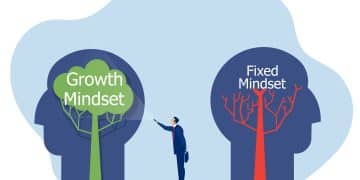Sustainable business models for a thriving future
Sustainable business models integrate eco-friendly practices that promote environmental health, enhance profitability, and build customer loyalty through responsible and innovative strategies.
Sustainable business models are more than just a buzzword; they represent a crucial shift in how companies operate. Have you ever wondered how adopting sustainable practices can impact your bottom line and the environment? Join us as we delve into the advantages and real-world applications of this transformative approach.
Understanding sustainable business models
Understanding sustainable business models is essential for companies aspiring to thrive in today’s eco-conscious market. These models incorporate environmental, social, and economic factors to create a balanced approach to business.
Sustainability isn’t just good for the planet; it can also improve a company’s reputation and profitability. By integrating sustainability into their structure, businesses can address the growing demand for responsible practices.
Key Components of Sustainable Business Models
Several pivotal elements define a sustainable business model:
- Resource Efficiency: Using resources wisely minimizes waste and reduces costs.
- Social Responsibility: Businesses should contribute positively to their communities and ensure fair labor practices.
- Eco-Friendly Products: Offering products that lower environmental impact attracts sustainability-minded consumers.
- Long-Term Viability: Maintaining a focus on long-term benefits over short-term gains ensures business longevity.
Moreover, successful sustainable models often adopt practices such as circular economy principles, where products are designed for reuse and recycling. This not only preserves resources but also aligns with the growing consumer preference for environmentally friendly options.
Engaging with stakeholders and customers about sustainability can further strengthen a business’s brand. When companies communicate their sustainable efforts transparently, they foster trust and loyalty among consumers who prioritize ethical purchasing.
Adopting a sustainable business model is not merely an option; it has become a necessity in modern business practices. As more companies recognize the benefits of sustainability, those who fail to adapt may find themselves outpaced in an evolving marketplace.
Key benefits of adopting sustainability

Adopting sustainability in business practices yields numerous benefits that can significantly enhance a company’s overall performance. By making this shift, businesses not only contribute to a healthier planet but also stand to gain in various ways.
One of the primary advantages is cost savings. Implementing energy-efficient systems and reducing waste can lower operational expenses. In many cases, these measures lead to substantial savings on utility bills and materials.
Enhanced Brand Reputation
Emphasizing sustainability can significantly enhance a brand’s image. Consumers today are more inclined to support companies that prioritize the environment. A commitment to sustainable practices can attract a loyal customer base eager to support responsible businesses.
- Increased customer loyalty: Customers appreciate transparency and responsibility.
- Attraction of new customers: Sustainability is a growing criterion for purchasing decisions.
- Positive media attention: Sustainable efforts can lead to valuable press coverage.
Another key benefit is regulatory compliance. Governments around the world are increasingly introducing regulations aimed at promoting sustainability. By proactively adopting these practices, companies can ensure compliance, avoiding potential fines and legal challenges.
Additionally, sustainability can foster innovation within a company. By looking for eco-friendly solutions, businesses often discover new products, services, or processes that can enhance their offerings. This innovative spirit is critical for staying competitive in a rapidly changing marketplace.
Finally, adopting sustainable practices can contribute to employee satisfaction. Workers often feel proud to be part of an organization that prioritizes the environment. This pride can lead to higher morale and reduced turnover rates, benefiting the organization’s stability.
Challenges in implementing sustainable practices
Implementing sustainable practices can present various challenges for businesses. Despite the clear benefits of adopting sustainability, numerous hurdles may discourage organizations from making significant changes.
One major challenge is the initial cost. Transitioning to eco-friendly materials or energy-efficient technology often requires a substantial investment upfront. Many companies struggle to reconcile these costs with their current budget, fearing that the financial outlay might not yield immediate returns.
Resistance to Change
Another significant obstacle is resistance from employees and management. Some individuals might be skeptical about the effectiveness of sustainable initiatives or feel overwhelmed by the changes required. Engaging employees and encouraging a culture of sustainability is important for overcoming this barrier.
- Communication: Clear communication about the benefits is crucial.
- Training: Providing training can help employees adapt.
- Involvement: Involving staff in the decision-making process encourages ownership.
Additionally, companies may face difficulties in finding suppliers who align with their sustainability goals. Securing partnerships with eco-friendly vendors can be a daunting task, especially for smaller businesses with limited options.
There is also the issue of measuring the success of sustainability efforts. Many organizations lack the necessary metrics or tools to evaluate their impact accurately. Without proper measurement, it can be challenging to justify continued investments in sustainable practices.
Finally, companies must navigate the complex landscape of regulations and policies related to sustainability. Keeping up with changing laws can be time-consuming, leaving businesses uncertain about compliance. Additionally, failing to adapt to these policies can lead to penalties and damaged reputations.
Success stories from sustainable businesses

Success stories from sustainable businesses show how adopting eco-friendly practices can lead to remarkable outcomes. Companies that embrace sustainability not only thrive financially, but they also create positive impacts on the environment and society.
For instance, consider the case of a well-known global apparel brand that shifted to sustainable materials. By using organic cotton and recycled fabrics, they reduced their carbon footprint while appealing to eco-conscious consumers. The result? An increase in sales and a stronger brand loyalty.
Innovative Approaches
Another success story comes from a food company that focused on reducing food waste. By implementing a zero-waste strategy, they found new ways to repurpose excess ingredients. This innovative approach not only saved money but also improved their sustainability profile, leading to recognition in various industry awards.
- Community Engagement: Many successful businesses engage their communities by supporting local initiatives and collaborating with non-profit organizations.
- Product Transparency: Companies that build trust through transparency about their sourcing and manufacturing processes attract more customers.
- Employee Involvement: Successful sustainable businesses educate and involve their employees in sustainability efforts, leading to a culture of responsibility.
Additionally, a technology firm implemented a green energy program and switched to renewable energy sources for their operations. This not only decreased energy costs but also demonstrated their commitment to sustainability, attracting environmentally-conscious clients and partners.
These examples illustrate that success in sustainable business practices is achievable and can lead to enhanced business performance. As more organizations highlight their sustainable achievements, the movement towards a greener economy gains momentum, inspiring others to take action.
Future trends in sustainable business models
Future trends in sustainable business models are evolving rapidly as companies recognize the importance of environmental responsibility. These trends not only aim to protect the planet but also open new avenues for growth and innovation.
One significant trend is the increased focus on circular economies. Instead of the traditional linear model of take-make-dispose, businesses are adopting systems that emphasize reuse and recycling of materials. This shift helps reduce waste and encourages innovation in product design.
Integration of Technology
Technology plays a vital role in the future of sustainable business. Innovations in artificial intelligence and blockchain are enabling businesses to track their sustainability efforts more effectively. These tools help companies monitor their supply chains, ensuring that sustainable practices are followed at every stage.
- AI for efficiency: Companies use AI to optimize resource use and reduce waste.
- Blockchain for transparency: Blockchain ensures accountability in sourcing and production.
- Data analytics: Analyzing data helps companies understand their environmental impact better.
Additionally, consumer demand for sustainability is driving brands to develop products that are not only eco-friendly but also socially responsible. Brands that promote ethical sourcing and fair labor practices are appealing to a growing base of conscious consumers who seek more than just a product; they want a story and values behind their purchases.
Another important trend is the rise of hybrid business models. Companies are combining profit-making strategies with non-profit goals to create impacts beyond their bottom line. This hybrid approach allows businesses to address social challenges while still achieving financial growth.
Finally, collaborations between businesses, governments, and NGOs are expected to become more prevalent. Partnerships facilitate knowledge sharing and enhance the capabilities of all parties involved, driving larger-scale sustainable initiatives.
In summary, the future of sustainable business models looks promising
As more companies embrace eco-friendly practices, they are not only protecting the environment but also boosting their profitability. Trends like circular economies, technology integration, and hybrid business models show that sustainability is about innovation and responsibility.
Businesses that prioritize sustainability are likely to gain a competitive edge, meeting the growing demands of conscious consumers and making a positive social impact.
By collaborating with various stakeholders and continuously improving their practices, companies can lead the way toward a brighter, sustainable future. The journey may be challenging, but the rewards are significant for both businesses and the planet.
FAQ – Frequently Asked Questions about Sustainable Business Models
What is a sustainable business model?
A sustainable business model is one that integrates environmental, social, and economic factors to create a balance that benefits both the company and the planet.
Why should my business adopt sustainability practices?
Adopting sustainability practices can lead to cost savings, improved brand reputation, and customer loyalty, while also contributing positively to the environment.
What are some examples of sustainable practices?
Examples include using renewable energy, reducing waste through recycling, adopting circular economy principles, and sourcing materials responsibly.
How can technology help in implementing sustainable practices?
Technology, such as AI and blockchain, can enhance monitoring, tracking, and optimizing resource use, making it easier for companies to implement and measure their sustainability initiatives.





